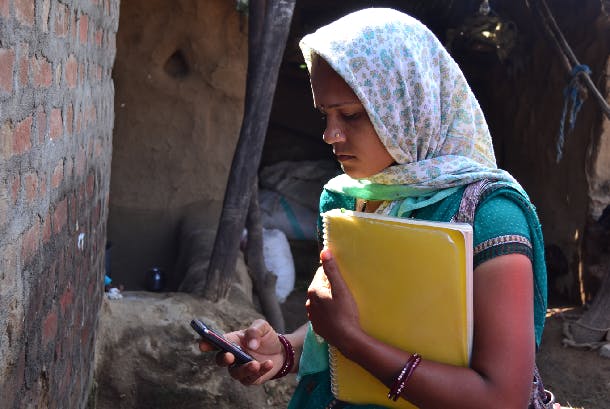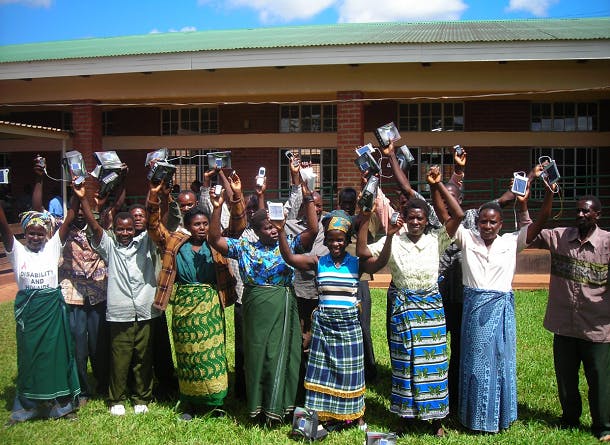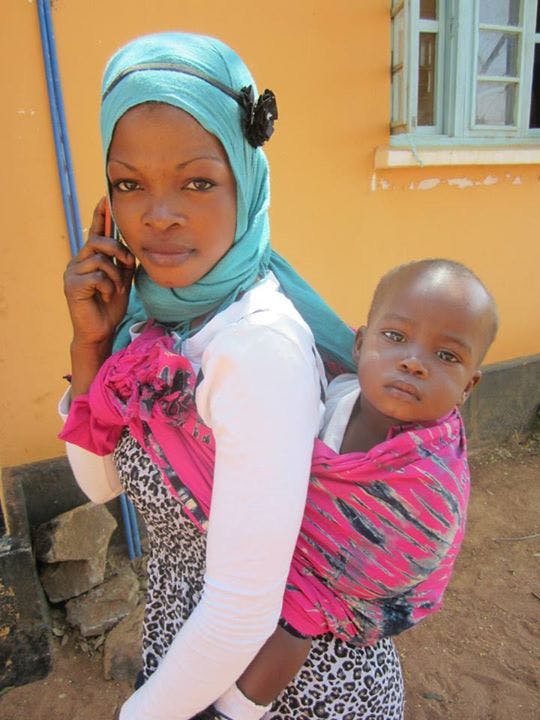
Six years ago, it was hard to imagine that women could receive vital health information via mobile phones and that ministries of health could have access to real time data for decision-making. There was no evidence base, the technology was constantly shifting and not in the hands of those who would benefit most, and government officials were skeptical. How were mobile phones going to improve lives? Could they actually enhance and potentially save the lives of women and children, especially the most vulnerable?
Six years ago we didn’t have answers to these questions. Now we do.
The mobile health (mHealth) space evolves at a rapid pace. And this is generally a good thing: The public health space has much to learn from the technology sector’s iterative approach. The key is ensuring that we are simultaneously building the evidence base for what works to improve lives, create the enabling environment for long-term solutions, and foster a sense of learning among key stakeholders. Complementing our previous work as host of the mHealth Alliance and the Mobile Alliance for Maternal Action (MAMA), the United Nations Foundation has worked to fill these needs through two other significant projects that are coming to fulfillment in the next month.

Every Woman, Every Child Innovation Working Group Catalytic mHealth Grant Program
Through the Every Woman, Every Child Innovation Working Group (IWG) Catalytic mHealth Grant Program, we have supported 26 cutting-edge organizations operating in 15 countries to build the field of mHealth solutions to improve reproductive, maternal, newborn, and child health. This set of grantees has reached 1.7 million beneficiaries – and as a result, 22,000 health workers are now using mobile services, platforms, and tools; and 9,250 health facilities are using mobile tools to improve health services.
Over the past four years, together with the World Health Organization (WHO), we have learned critical lessons not only in the implementation of mHealth programs, but also in how to bolster a growing community through joint learning, tools and resource development, and funding through grants. WHO is using key learnings from this effort to design a new digital health innovation strategy with the intent of providing tools that will be necessary for governments to identify, assess, align, and integrate digital health innovation into their priorities and programs. One example is the mHealth Assessment and Planning for Scale toolkit, or MAPS, which helps implementers scale and sustain their programs by assessing them against parameters such as partnerships, operations, and financial health.
Information and Communication Technologies for Saving One Million Lives
The Information and Communication Technologies for Saving One Million Lives (ICT4SOML) initiative in Nigeria has worked closely with the Federal Ministries of Health and Communication Technology to create an enabling environment in Nigeria for the systematic use of information and communication technologies (ICTs) to improve the health system as well as support the scale up and institutionalization of high priority ICT-based programs. This initiative has engaged more than 150 stakeholders from over 50 government agencies, non-governmental organizations, private sector organizations, donors, and implementing institutions to design a National Health ICT Strategic Framework that is ready to deploy at state and national levels.
Last week, the Nigerian National Council on Health approved and passed this strategic framework, a significant milestone that paves the way for implementation across the country. While much remains to be done to operationalize the framework fully in Nigeria, ministries of health throughout West and East Africa are already eager to learn from the Nigerian experience – both the strong strides and the faulty steps along the way.
While our engagement on these two critical pieces of this work will come to a close later this month, there is much to celebrate, learn from, and encourage the broader field to take up to continue to fulfill the promise of digital solutions for maternal, newborn, and child health.
The UN Foundation will remain engaged in the ICT and development space through the Digital Impact Alliance, or DIAL, which we host. DIAL’s interdisciplinary approach will cut across sectors, platforms, and development agencies to reflect this changing global landscape. We are hopeful this will provide a helpful complement to ongoing work by our partners over the last five years in the mHealth space.




 View All Blog Posts
View All Blog Posts